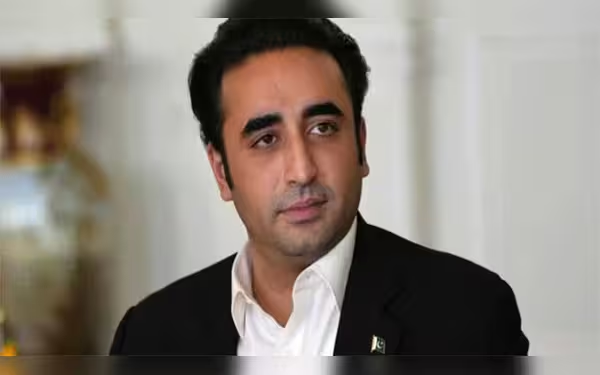Saturday, November 16, 2024 10:37 PM
Bilawal Acknowledges Coalition Government's Lack of Two-Thirds Majority
- Bilawal admits coalition lacks two-thirds majority.
- Constitutional amendments require broad political consensus.
- Future of proposed amendments remains uncertain.
 Image Credits: dunyanews.tv
Image Credits: dunyanews.tvBilawal Bhutto Zardari highlights the coalition government's struggle to secure a two-thirds majority for constitutional amendments in Pakistan.
In a significant political development, Bilawal Bhutto Zardari, the Chairman of the Pakistan Peoples Party (PPP), has openly acknowledged that the current coalition government lacks the necessary two-thirds majority required to pass a constitutional amendment bill in the National Assembly. This admission sheds light on the challenges faced by the ruling coalition as it seeks to implement crucial changes to the constitution.
The issue of constitutional amendments is a critical one in Pakistan's political landscape. Such amendments often require broad consensus among various political parties to ensure stability and acceptance across the board. Bilawal emphasized the importance of collaboration, stating, "Constitutional package needs consensus." This statement highlights the necessity for unity among political factions to navigate the complexities of governance and legislative processes.
The absence of a two-thirds majority means that the coalition government may struggle to push through significant reforms or changes that require constitutional backing. This situation raises questions about the future of proposed amendments and the overall effectiveness of the current government. Without the support of opposition parties or a larger coalition, the ruling party may find it increasingly difficult to achieve its legislative goals.
Moreover, this scenario reflects a broader trend in Pakistani politics, where coalition governments often face hurdles due to fragmented political landscapes. The need for consensus is not just a political strategy; it is essential for fostering a sense of national unity and ensuring that the voices of diverse groups are heard in the legislative process.
As the political situation unfolds, it remains to be seen how the coalition government will navigate these challenges. Will they seek to build bridges with opposition parties, or will they attempt to push through amendments without the necessary support? The coming weeks will be crucial in determining the direction of Pakistan's political future.
Bilawal's candid acknowledgment of the coalition's limitations serves as a reminder of the intricate dynamics of governance in Pakistan. It underscores the importance of collaboration and dialogue in achieving meaningful political progress. As citizens, it is vital to stay informed and engaged with these developments, as they will undoubtedly shape the country's trajectory in the months and years to come.













